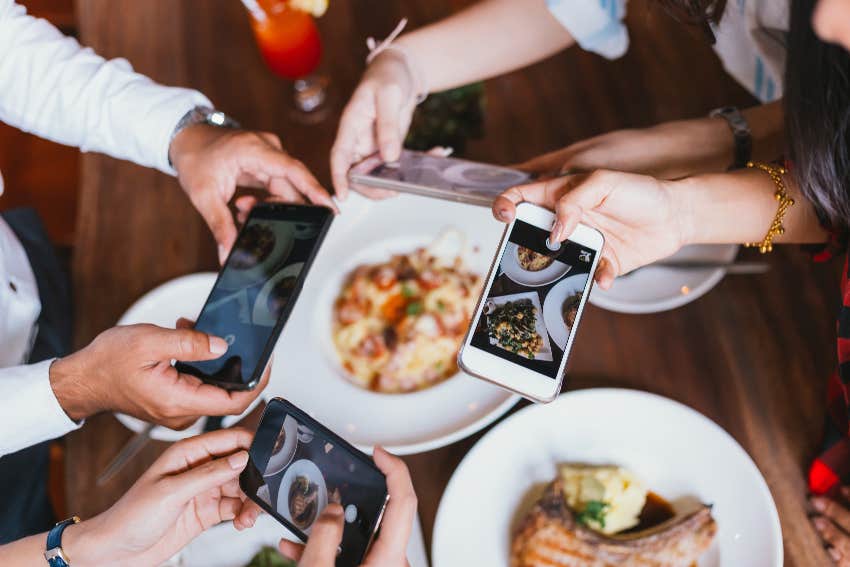The Delight Baby Boomers Feel When Millennials Complain About Getting Old — 'Poor, Sweet Dears'
Millennials are now becoming their parents. Welcome.
 Prostock-studio | Canva
Prostock-studio | Canva Editor's Note: This is a part of YourTango's Opinion section where individual authors can provide varying perspectives for wide-ranging political, social, and personal commentary on issues.
Now that they’re entering their 40s, Millennials aren’t so entitled to be free of the ravages of aging.
“Millennials Are Sharing Their Thoughts And Feelings About Getting Older,” goes a Buzzfeed headline. Samples:
“No one ever told me I’d find it so hard to read things in my 40s. It sucks.”
“I am 42, and I had to give up coffee to put an end to my heartburn.”
“My hearing is starting to go, and it’s kind of scary.”
“I am enjoying my 40s, except for the part where I have no idea what my body is doing! UGH!”
"I don’t sleep through the night anymore.”
“I have sciatic nerve pain from my lower back to my knee.”
“I slept on my right shoulder a couple of weeks ago, and ever since, it’s been messed up.”
“The worst is that my system has decided it no longer likes dairy. Why did nobody tell us this stuff???”
Um, we did, kids. If you listened instead of sneering, “Okay Boomer.”
Millennials were always going to be superior to Boomers, according to Millennials.
 StockPhotoDirectors / Shutterstock
StockPhotoDirectors / Shutterstock
They’d eat better and drink smarter. Be altogether healthier. Balance work and life and ensure plenty of “me time.”
Stress less chasing the almighty corporate dollar, BMWs, owning a home, opening 401k accounts for retirement, and 529 college funds for the kids. Eschewing other crass materialistic forms of so-called success.
Millennials preferred memorable experiences to post online for others to envy. They cared more about the planet and marginalized people, or at least guilted Boomers about them. They invented “woke” for Gen Z to run amok with and put Trump back in the White House.
And thanks to Boomer coddling, helicoptering, and participation trophy-awarding, Millennials had more courage to demand more praise, pay, and promotions, deserved or not.
No coincidence that the proliferation of “40 under 40” professional awards that began with the 1999 Forbes list and spread like COVID-19 to every industry, inflated job titles, and padded LinkedIn profiles corresponded with Millennial career timelines.
But like every generation that scoffed at their parents, Millennials are now becoming their Boomer parents.
They’re buying big, safe, comfortable family cars. Not Oldsmobile station wagons or dreaded minivans but cool three-row SUVs.
They’re wearing more comfy clothing. Not tracksuits or pleated Dad Chinos and Mom Jeans, but Lululemon athleisure wear and trading skinny jeans for stylish big baggy denim.
Their knees pop and lock if they try to Pop and Lock as their Gen Z tweens cringe.
They repeat the old joke that their backs go out more than they do and so does their internet.
After snacking on deli cold cuts, rebranded as charcuterie, their alimentary systems sound like a discordant symphony of construction equipment conducted by avant-garde improvisational jazz pioneer Charles Mingus tearing down an abandoned Abercrombie.
Millennials are especially coming to terms that some foods, as Boomers say, 'don’t agree with them.'
For Boomers, this was a polite way to say we can’t eat certain things anymore, however healthy and among basic staples that 700 million people on the planet are starving for. Boomers were the first to popularize artisan bread and then discover that any bread, formerly the food of life, is deadlier than fast food or war.
Digestion, like every bodily function, weakens after midlife. Boomers often needed to avoid painfully containing or emitting family-dispersing, climate-destroying CH4.
But Millennials, while positioning as more tolerant than Boomers who tolerated their childhood fussy eating, re-branded their pickiness to reposition as “food intolerant” victims of corporate Boomer food offered by Whole Foods.
Gluten, sucrose, glucose, fructose, lactose, Sloppy Joes, and other bespoke food intolerances multiplied faster than genders.
Millennials proudly labeled themselves with a range of bespoke dietary needs and restrictions. They went well beyond simple vegetarian or vegan to include planet-sustainable ovo-lacto pescatarian polotarian flexitarian omnitarian (from the Latin words omni, “all, everything” and vorare, “to devour.”)
That would cover, I guess, the explosion in amazing dining experiences posted on Instagram such as milk-fed lamb leg with black olive and anchovy gremolata paired with a creamy white wine such as a barrel-aged verdejo.
 Twinsterphoto / Shutterstock
Twinsterphoto / Shutterstock
Going further, Millennials also were the first to fret about the dangers of FODMAPs. You know, those Fermentable Oligosaccharides, Disaccharides, Monosaccharides and Polyols.
Now restaurant servers have to ask about any sensitivities to Fructans (found in garlic, onions, and wheat), Galactans (found in beans and legumes), or Thermians (found in Galaxy Quest). Lest the Millennials inflate like their parents.
Millennials were going to be the next Greatest Generation.
Even without struggling through the Great Depression and fighting two world wars. That’s what Boomers told them, and — hee hee — they bought it.
Kids, we were messing with you! Do you think you invented irony?
Jeffrey Denny is a seasoned Washington writer, award-winning journalist, speechwriter, and communications strategist for national leaders. He is a frequent contributor to Medium.

